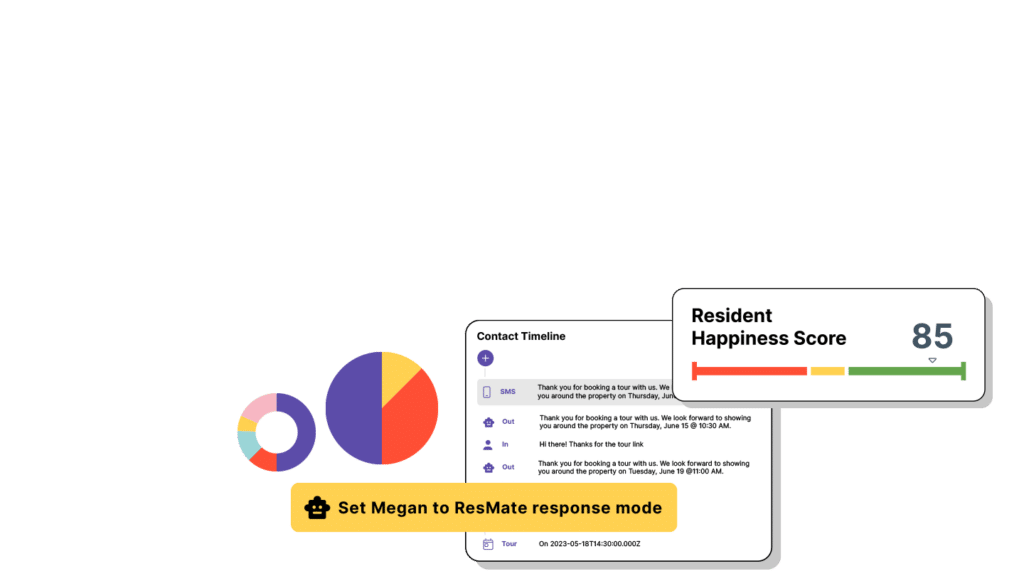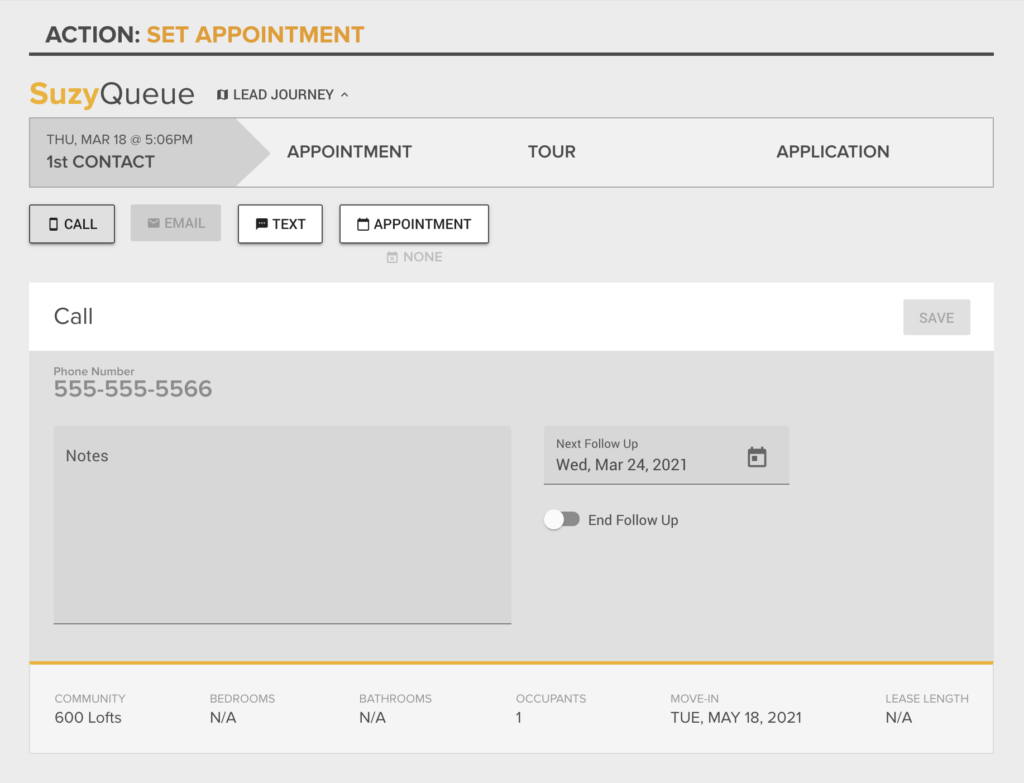As CRM leasing takes center stage, it’s time to dive into the transformative power it holds for leasing companies. By seamlessly integrating customer relationship management into leasing operations, businesses can unlock a world of benefits that drive efficiency, enhance customer satisfaction, and propel growth.
From streamlined processes to data-driven insights, CRM leasing empowers leasing professionals with the tools they need to excel. Its comprehensive capabilities cater specifically to the unique demands of the leasing industry, ensuring a tailored solution that optimizes performance and delivers exceptional customer experiences.
Customer Relationship Management (CRM) for Leasing
In the dynamic leasing industry, fostering strong customer relationships is crucial for sustained success. Customer Relationship Management (CRM) systems play a pivotal role in empowering leasing companies to manage customer interactions effectively, streamline operations, and drive growth.
CRM systems for leasing provide a centralized platform that consolidates customer data, automates workflows, and enables personalized communication. By leveraging these capabilities, leasing companies can gain a comprehensive understanding of their customers’ needs, preferences, and leasing history, enabling them to tailor their offerings and build lasting relationships.
Benefits of CRM for Leasing Companies
- Enhanced Customer Service:CRM systems facilitate seamless communication across multiple channels, ensuring prompt and personalized responses to customer inquiries and requests.
- Improved Lead Management:CRM systems streamline lead generation and tracking, enabling leasing companies to nurture leads effectively and convert them into paying customers.
- Automated Workflows:CRM systems automate repetitive tasks such as appointment scheduling, document generation, and follow-ups, freeing up leasing agents to focus on high-value activities.
- Data-Driven Insights:CRM systems provide valuable insights into customer behavior, preferences, and leasing trends, empowering leasing companies to make informed decisions and optimize their operations.
Successful CRM Implementations in the Leasing Industry
Numerous leasing companies have successfully implemented CRM systems to transform their operations and achieve significant results. Here are a few notable examples:
- LeaseAccelerator:LeaseAccelerator is a leading CRM solution provider for the leasing industry. Their CRM system has helped leasing companies streamline their operations, improve customer satisfaction, and increase revenue.
- Salesforce:Salesforce is a renowned CRM platform that has been adopted by many leasing companies. Salesforce’s CRM system offers a comprehensive suite of features that enable leasing companies to manage customer relationships, automate workflows, and gain valuable insights.
Features of a CRM System for Leasing
Customer Relationship Management (CRM) systems tailored for leasing companies offer a range of features that cater to the specific needs of leasing operations. These features streamline processes, improve communication, and enhance customer satisfaction.
The core features of a CRM system for leasing include:
- Lead Management:Capture, qualify, and track leads from various sources, ensuring efficient lead nurturing and conversion.
- Contact Management:Store and manage detailed customer information, including contact history, preferences, and lease agreements.
- Lease Management:Manage lease contracts, track payments, and automate lease renewal processes, simplifying lease administration.
- Asset Management:Track and manage leased assets, including maintenance records, location information, and depreciation schedules.
- Reporting and Analytics:Generate comprehensive reports and dashboards to analyze leasing performance, identify trends, and make informed decisions.
Customization and integration with other systems are crucial for a CRM system to meet the specific requirements of each leasing company. Customization allows for tailoring the system to unique business processes, while integration with other systems, such as accounting or property management software, ensures seamless data flow and eliminates manual data entry.
Benefits of Using a CRM System for Leasing
Customer relationship management (CRM) systems offer a range of benefits for leasing businesses, including increased efficiency, improved customer satisfaction, and cost savings.
Quantifiable ROI and Cost Savings
CRM systems can help leasing businesses track and manage customer interactions, automate tasks, and streamline processes. This can lead to significant cost savings in terms of time and labor. For example, a study by Nucleus Research found that companies that implemented a CRM system saw an average return on investment (ROI) of 245% within three years.
Improved Customer Satisfaction and Retention
CRM systems can help leasing businesses improve customer satisfaction and retention by providing a central repository for customer information, tracking customer interactions, and automating follow-up communications. This can help businesses build stronger relationships with their customers and reduce churn.
Case Studies
There are numerous case studies that demonstrate the positive impact of CRM systems on leasing businesses. For example, one study by the Aberdeen Group found that companies that used a CRM system had a 25% higher customer retention rate than those that did not.
Best Practices for Implementing a CRM System for Leasing: Crm Leasing
Implementing a CRM system for leasing companies requires careful planning and execution to ensure a successful outcome. Here are some best practices to consider:
Key Steps in Implementation
- Define Goals and Objectives:Determine the specific business objectives that the CRM system should support.
- Select the Right Vendor:Evaluate vendors based on their experience, functionality, and compatibility with your leasing processes.
- Configure and Customize:Tailor the CRM system to meet your specific requirements, including data fields, workflows, and reporting.
- Integrate with Other Systems:Connect the CRM system with other essential software, such as accounting, property management, and marketing automation.
- Train and Support Users:Provide comprehensive training and ongoing support to ensure user adoption and proficiency.
Tips for Success
- Engage Stakeholders:Involve key stakeholders throughout the implementation process to ensure buy-in and support.
- Start Small:Implement the CRM system in phases to avoid overwhelming users and reduce risks.
- Use a Change Management Plan:Prepare a plan to manage the transition to the new system and address potential resistance.
- Measure and Evaluate:Track key performance indicators (KPIs) to monitor the system’s effectiveness and make adjustments as needed.
Common Challenges and Pitfalls
- Lack of User Adoption:Ensure users are properly trained and motivated to use the system effectively.
- Data Migration Issues:Address potential challenges in migrating data from legacy systems to the new CRM.
- Integration Complexity:Plan carefully for integrations with other systems to avoid compatibility issues and data inconsistencies.
- Lack of Customization:Choose a CRM system that allows for customization to meet your specific requirements.
- Poor Change Management:Manage the transition to the new system effectively to minimize disruption and resistance.
Integration with Other Systems

Integrating a CRM system with other business applications, such as Enterprise Resource Planning (ERP) and accounting software, is crucial for streamlining operations and enhancing data accuracy.
By integrating with ERP systems, CRM can automatically update customer information, order history, and inventory levels. This eliminates the need for manual data entry, reducing errors and saving time. Integration with accounting software enables seamless transfer of financial data, ensuring accurate billing and revenue tracking.
Challenges and Best Practices
- Data Standardization:Ensure consistent data formats and definitions across all integrated systems.
- Security Concerns:Implement robust security measures to protect sensitive customer and business data.
- Vendor Compatibility:Verify compatibility between the CRM system and other software before integration.
- Phased Implementation:Implement integration in phases to minimize disruptions and allow for gradual adjustment.
- Regular Maintenance:Monitor and maintain integrations regularly to ensure optimal performance and data accuracy.
Data Management and Analytics

Data management and analytics are crucial for effective leasing operations. A CRM system centralizes leasing data, providing a comprehensive view of customer interactions, lease agreements, and property performance. This data can be leveraged to improve decision-making and drive growth.
Analytics for Decision-Making
CRM data can be analyzed to identify trends, patterns, and insights that inform strategic decisions. For example, data on lease expirations can help predict future demand and adjust leasing strategies accordingly. Analysis of customer preferences and feedback can help tailor marketing campaigns and improve tenant satisfaction.
Dashboards and Reporting
Dashboards and reporting tools provide real-time visibility into key metrics such as occupancy rates, lease renewal rates, and rent collection performance. These insights enable leasing professionals to track progress, identify areas for improvement, and make data-driven decisions to optimize operations.
Mobile CRM for Leasing

Mobile CRM for leasing professionals empowers them with real-time access to customer information, streamlining communication and enhancing productivity. It enables them to manage leads, track customer interactions, and close deals on the go.
Improved Productivity
Mobile CRM eliminates the need for manual data entry and paperwork, saving valuable time for leasing professionals. Automated workflows and reminders ensure timely follow-ups and efficient task management.
Enhanced Customer Engagement, Crm leasing
With mobile CRM, leasing professionals can respond to customer inquiries promptly, even when they’re away from the office. They can access customer history, preferences, and communication records, enabling them to provide personalized and informed interactions.
Implementation Considerations
When implementing mobile CRM, it’s crucial to consider factors such as device compatibility, data security, and user training. Ensuring seamless integration with existing systems and providing ongoing support is essential for successful adoption.
Future Trends in CRM for Leasing

The future of CRM in leasing is being shaped by emerging technologies and trends that are revolutionizing the way businesses manage customer relationships. These advancements promise to enhance efficiency, personalize experiences, and drive growth for leasing companies.
Artificial Intelligence and Machine Learning
- Artificial intelligence (AI) and machine learning (ML) algorithms are being integrated into CRM systems to automate tasks, improve data analysis, and provide personalized recommendations. AI-powered chatbots can assist customers with inquiries and support requests, freeing up leasing agents to focus on more complex tasks.
- ML algorithms can analyze customer data to identify patterns, predict behaviors, and segment customers based on their needs and preferences. This enables leasing companies to tailor their marketing and sales strategies for maximum impact.
Automation
- Automation is playing a significant role in streamlining CRM processes, reducing manual workloads, and improving efficiency. Automated workflows can trigger actions based on specific events, such as sending follow-up emails, scheduling appointments, or generating reports.
- By automating repetitive tasks, leasing agents can allocate more time to building relationships with customers, exploring new opportunities, and providing exceptional service.
Future Direction of CRM for Leasing Companies
The future direction of CRM for leasing companies lies in the convergence of these emerging technologies. AI, ML, and automation will continue to enhance CRM capabilities, enabling leasing companies to:
- Provide personalized and proactive customer experiences
- Automate routine tasks and streamline processes
- Gain actionable insights from data to make informed decisions
- Drive growth and profitability through improved customer engagement
Final Wrap-Up
In the ever-evolving landscape of leasing, CRM has emerged as a cornerstone for success. Its ability to streamline operations, enhance customer engagement, and empower data-driven decision-making has made it an indispensable tool for leasing companies. As we look towards the future, CRM leasing will continue to evolve, leveraging cutting-edge technologies to drive innovation and shape the industry’s trajectory.
Quick FAQs
What are the key benefits of CRM leasing?
CRM leasing offers a multitude of benefits, including improved customer satisfaction, increased efficiency, enhanced data management, and optimized decision-making.
How can CRM leasing help improve customer satisfaction?
CRM leasing provides a centralized platform for managing customer interactions, enabling leasing professionals to track preferences, resolve issues promptly, and build stronger relationships.
What are the common challenges associated with CRM leasing implementation?
Potential challenges include data migration, user adoption, and ensuring integration with existing systems. However, with proper planning and support, these challenges can be effectively addressed.